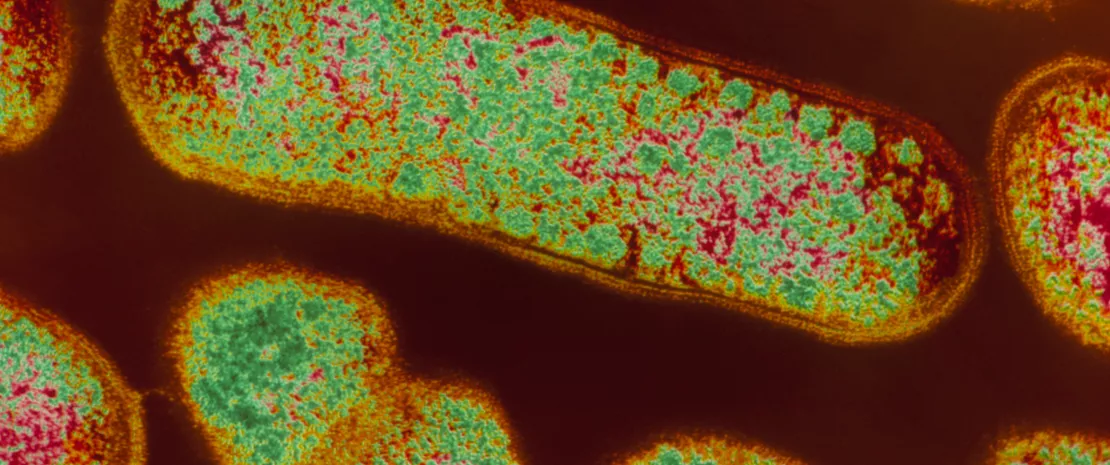New insights into vaginal microbiome dynamics: a game changer for women’s health
New research 1 on vaginal microbiome dynamics reveals that its state fluctuates over time, offering a deeper view beyond traditional snapshots. This breakthrough could transform how we assess and manage women’s health, especially conditions like bacterial vaginosis.
Lay public section
Find here your dedicated section
Sources
This article is based on scientific information

About this article
Author
How we measure vaginal health
Recent research has uncovered a new layer of complexity in understanding the vaginal microbiome, revealing that its state is far from static. Traditionally, scientists have used the (sidenote: Nugent score A diagnostic scoring system used to assess bacterial vaginosis based on the presence and proportions of certain bacteria in a Gram-stained vaginal sample. ) 2 and Community State Types (CSTs) 3 to classify vaginal microbiomes.
The Nugent score assesses microbiome health through microscopy, calculating a score based on the abundance of bacterial morphotypes associated with either "healthy" or BV-associated microbiota. CSTs, meanwhile, classify vaginal microbiomes into five types based on bacterial dominance, indicating either Lactobacillus-dominated "eubiotic" states or diverse, Lactobacillus-poor states associated with dysbiosis.
However, a new approach known as Vaginal Community Dynamics (VCDs) captures microbiome fluctuations over time, showing that these classifications may only represent snapshots rather than true microbiome stability. This new perspective has profound implications for women’s health, from routine diagnostics to the personalized management of conditions like bacterial vaginosis (BV).
Mapping microbiome dynamics with VCDs
The recent study 1 led by Dr. Ina Schuppe‑Koistinen and Prof. Henriette Svarre Nielsen from the Karolinska Institute observed daily microbiome transitions in 49 young women over a complete menstrual cycle, uncovering four distinct VCDs: constant eubiotic (stable (sidenote: Lactobacillus A group of beneficial bacteria commonly found in the vaginal microbiome. They produce lactic acid, helping maintain a low pH to protect against infections. ) -dominant), constant dysbiotic (persistent dysbiosis), menses-related dysbiotic (Lactobacillus dominance disrupted only during menstruation), and unstable dysbiotic (frequent shifts in microbial composition).
These VCDs highlight each woman’s unique microbial stability or instability in response to external factors like menstruation and sexual activity - factors often overlooked by both CSTs and Nugent scoring.
Bacterial vaginosis: sexual transmission & genomic insights
Phages and bacteriocins: key players in vaginal microbiome stability
The study also found that bacteriophages and bacteriocins might influence microbiome dynamics. Higher phage activity was observed in unstable VCDs, suggesting a potential role in selectively reducing Lactobacillus populations. Additionally, certain strains of Gardnerella in dysbiotic VCDs contained bacteriocin genes, which may inhibit beneficial lactobacilli and contribute to microbiome instability. These insights could eventually lead to new therapies aimed at stabilizing the vaginal microbiome by targeting phages or bacteriocins.
Why VCDs could transform clinical practice
The shift from static to dynamic classification holds significant promise for clinical applications. While Nugent scores and CSTs can indicate "healthy" or "dysbiotic" states from single samples, VCDs offer insights into microbiome resilience, revealing how often an individual’s microbiome shifts toward dysbiosis. For instance, VCDs could enable clinicians to identify patients prone to frequent microbiome disruptions and help them design more targeted, preventive interventions.
Such an approach could transform how we manage conditions like BV, where microbiome fluctuations are common, and improve outcomes by personalizing care to each patient’s unique microbiome stability.













